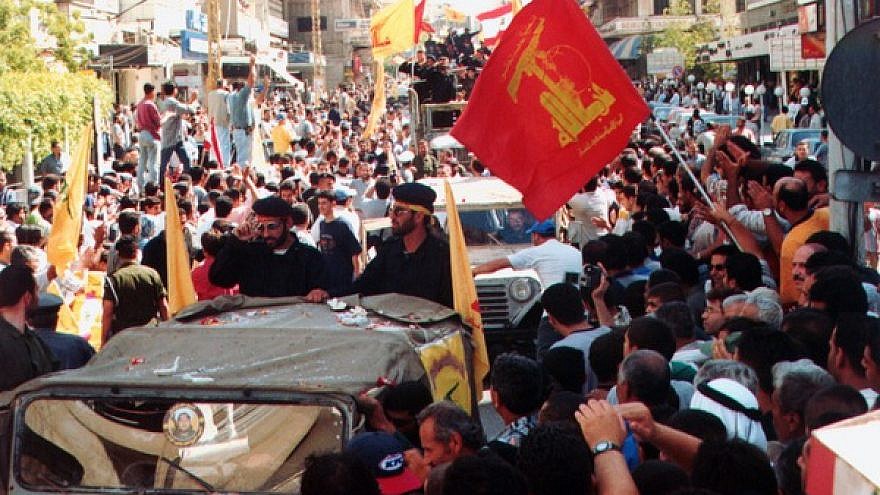The Lebanese daily Al-Mudun and the Shi’ite Janoubia.com website, both known to be anti-Hezbollah, published articles recently bemoaning the situation in South Lebanon under Hezbollah rule. The articles criticized Hezbollah’s suppression of free expression, leisure and political activity and more. The articles claimed that the area’s residents are unwilling to protest for fear that they will be harmed. ‘’
Shi’ite journalist and author Muhammad Barakat wrote on Janoubia.com that those who pride themselves on liberating South Lebanon from Israel in May 2000 and who have marked the anniversary of this event ever since, have not liberated the region’s residents at all. Instead, he wrote, they have launched a drive for control, oppression and religious coercion.
“When we said that all Lebanese must oppose the oppression of the residents of South Lebanon,” he wrote, “everyone leaned towards maintaining their relations with Hezbollah, or refrained from conflict—as this oppression expanded and spread from region to region … What is unfortunate is that everyone—the Lebanese, the parties and the Arabs—clung to their positions.
“It is difficult, perhaps impossible, to develop an idea or an initiative in Lebanon without the sponsorship of [certain] elements in [Lebanon] or the region. If this drive [for oppression], in which the residents of South Lebanon have been trapped since 2000, continues … [that is,] bans on alcohol, singing and political activity, it will cause burnout across the region, and in all likelihood nothing is going to change.
“Israel has developed and advanced in agriculture, industry and technology—while ‘liberated’ South Lebanon has no factories except for those churning out fighters and wars. There are no universities except for those [teaching] religion and accusations of treason. There are no real hospitals except for the spiritual [ones] that anesthetize the people and convince the young to die instead of those who fund [the wars but do not fight].”
In Al-Mudun, author Qassem Marwani described life in South Lebanon since Hezbollah took over: “My trip to Tyre began in Bint Jbeil, one of Hezbollah’s vital strongholds, and I had to pass through several villages full of portraits of martyrs and leaders. I found nowhere to buy alcohol until I reached the coastal villages, the Amal stronghold. Once, before Hezbollah tightened its hold on the mountain villages, it was possible to find a few liquor stores, but all their owners were forced to shut down. If anyone refused, his business was set on fire. When we wanted to buy liquor, we had to drive long distances to reach one of the Christian villages.
“In 2011, we decided to spend New Year’s Eve [December 31] at the Al-Tirus restaurant in Tyre, where they served alcoholic beverages and there were singers who performed. [But] several days before the event, the restaurant was bombed. No one claimed responsibility for it and no motive for it was published, but we knew all too well who had done it and why. It was the first step towards changing, at least partially, the way of life in Tyre, in order to later control it all. Despite the bombing, we all insisted on joining the Christian New Year celebrations, but a short time later the restaurant shut down.
“It didn’t stop with the alcohol [ban] … We used to throw parties in the village every weekend. There was music in the courtyard or garden of one of our friends, and we would dance. I remember well those days, in 2003, and the years before that. But suddenly, during one party, a Hezbollah official came and said, ‘40,000 martyrs were killed in an earthquake in Iran, and you’re partying?’
“At a restaurant in the village, a singer was performing at an engagement party. Then a vehicle pulled up with some gunmen in it; they stopped the party and silenced the music, claiming that in the next village people were holding a memorial for a martyr. Instead of music, there were Shi’ite prayers.
“I sat alone in the town square one evening after everyone had gone to dinner, and listened sorrowfully to the voice of the Shi’ite preacher coming from the village mosque. Every day, the voice gets louder, and the number of loudspeakers increases. Every time anyone builds a house, they have to include a loudspeaker. They sound the preacher’s prayers every Friday and every day during Ramadan. [There is only] this prayer, and endless houses of mourning. Sometimes I wonder: were I God, how would I bear all the continuous sadness and bitterness?”


























